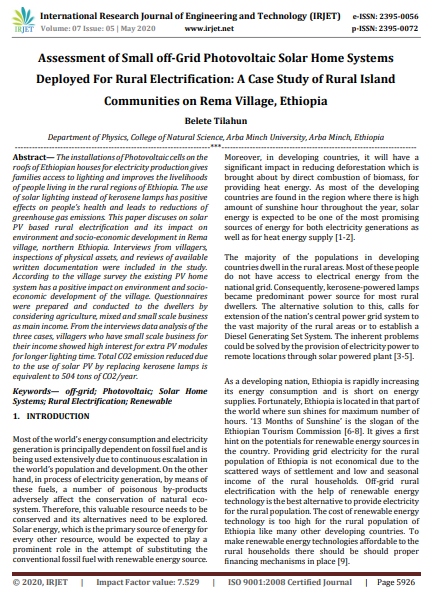Publication date: 2020, May
Author: IRJET
Description: The installations of Photovoltaic cells on the roofs of Ethiopian houses for electricity production gives families access to lighting and improves the livelihoods of people living in the rural regions of Ethiopia. The use of solar lighting instead of kerosene lamps has positive effects on people’s health and leads to reductions of greenhouse gas emissions. This paper discuses on solar PV based rural electrification and its impact on environment and socio-economic development in Rema village, northern Ethiopia. Interviews from villagers, inspections of physical assets, and reviews of available written documentation were included in the study. According to the village survey the existing PV home system has a positive impact on environment and socioeconomic development of the village. Questionnaires were prepared and conducted to the dwellers by considering agriculture, mixed and small scale business as main income. From the interviews data analysis of the three cases, villagers who have small scale business for their income showed high interest for extra PV modules for longer lighting time. Total CO2 emission reduced due to the use of solar PV by replacing kerosene lamps is equivalent to 504 tons of CO2/year.






















